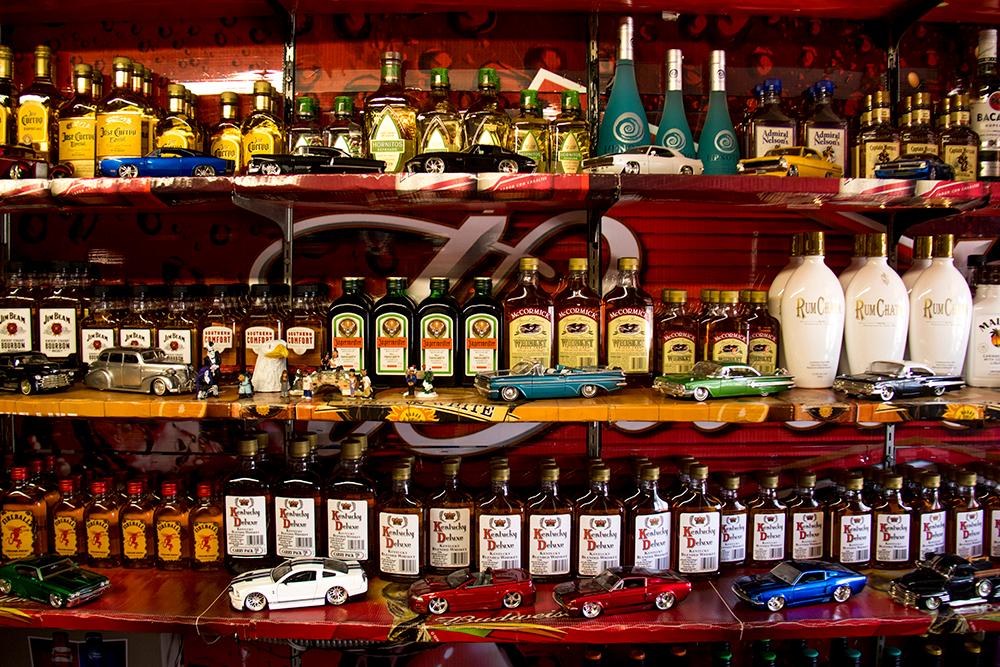
The question of who should be allowed to deliver alcohol to consumers is on the ballot this fall. Under current law, liquor stores, supermarkets and other retailers can only deliver those products using their own employees. This initiative would change that to allow third-party services — think Doordash or Instacart — to do it too.
Under temporary, pandemic-inspired rules, restaurants have been able to include alcoholic beverages in their delivery and to-go orders. The change has proved popular enough that last year, Gov. Polis signed a bill extending to-go restaurant alcohol sales until 2025. This ballot measure would also make the policy permanent.
Twenty-six other states currently allow alcohol to be delivered by third parties.
The change would require third-party delivery services to have an internal or external security process for drivers who deliver alcohol. This would involve checking identification and refusing delivery to underage or already intoxicated people.
Here’s the language you’ll see on the ballot:
Shall there be a change to the Colorado Revised Statutes concerning authorization for the third-party delivery of alcohol beverages, and, in connection therewith, allowing retail establishments licensed to sell alcohol beverages for on-site or off-site consumption to deliver all types of alcohol beverages to a person twenty-one years of age or older through a third-party delivery service that obtains a delivery service permit; prohibiting the delivery of alcohol beverages to a person who is under 21 years of age, is intoxicated, or fails to provide proof of identification; removing the limit on the percentage of gross sales revenues a licensee may receive from alcohol beverage deliveries; and allowing a technology services company, without obtaining a third-party delivery service permit, to provide software or a digital network application that connects consumers and licensed retailers for the delivery of alcohol beverages?
How would it work?
Third-party delivery companies would be allowed to deliver alcohol to customers just like they deliver food now. The change would go into effect March 1, 2023.
Importantly, they would first be required to get a ‘delivery service permit’ from the state licensing authority aimed at ensuring the third-party delivery service is abiding by Colorado’s alcohol laws. Drivers would have to be older than 21 and pass a certification program that would include training on identifying underage or intoxicated people and spotting fake or altered IDs.
The initiative also removes a current restriction that caps how much of a liquor store, bar or restaurant’s bottom line can come from alcohol delivery.
Because it’s a law change, this measure needs a simple majority (anything over 50 percent) to pass.
Who’s for it?
Supermarket chains and the companies behind popular delivery apps are the main proponents of this measure. But they say it will be good for all Coloradans, by offering more convenience for customers, and potentially cutting down on the danger of people making liquor store runs while already intoxicated (although the measure does ban the delivery of alcohol to visible drunk customers). Backers also argue it will offer liquor stores another revenue stream.
The issues committee, Wine in Grocery Stores, has raised over 11 million dollars since its creation in June to support propositions 125 and 126. The vast majority of that money has come from six large national companies. DoorDash and Instacart have both contributed over 3 million dollars, and the other four — Krogers, Safeway, Target and Whole Foods — have chipped in at least 1 million apiece.
Who’s against it?
The state has about 1,600 stand-alone liquor stores that are fighting the proposals on the ballot. Many of these are small, locally owned and independently operated. A trade group representing many owners says half its members are women and almost two-thirds use English as a second language.
Smaller liquor stores in general argue they stand to lose a significant portion of their business to third-party delivery services, impacting their bottom line and making it harder to stay open. They point to the struggles some restaurants have had with delivery service fees.
Larger liquor stores that already offer their own delivery services say third-party delivery is unnecessary for them
Keeping Colorado Local is an issue committee formed to oppose the ballot measure. It has raised over $450,000 dollars.
Further coverage
- Family-owned liquor stores face uncertain future as voters could decide key changes at the ballot
- Wine at your grocery store? Doordash and big supermarket chains want you to vote on it this fall









